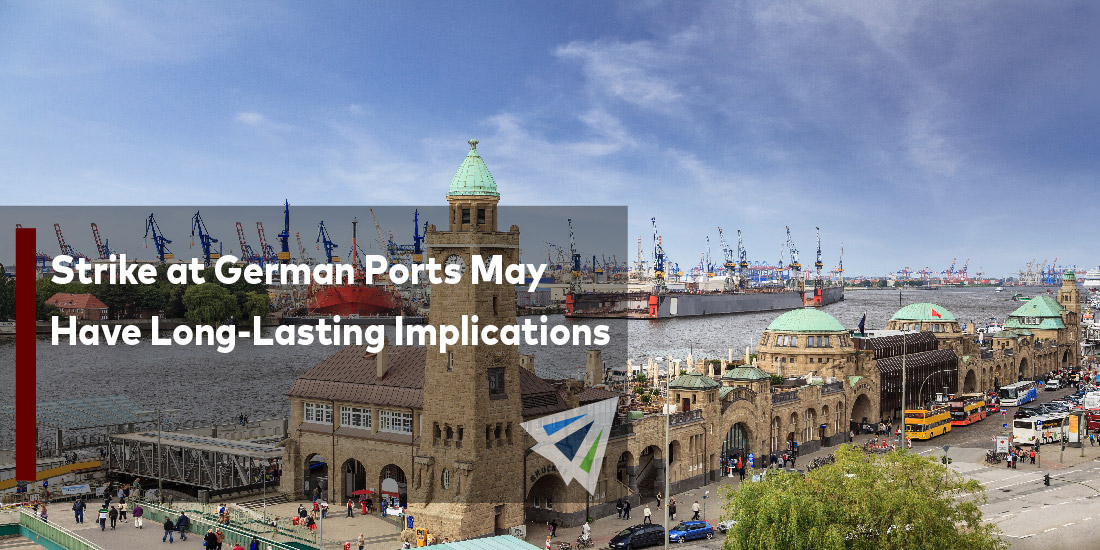Strike at German Ports May Have Long-Lasting Implications
Operations came to a standstill this last week across all major German North Sea ports as port workers went on strike in response to unsettled negotiations regarding union arguments over increasing worker pay. It put a major halt to all port activity as operations were completed stopped beginning Thursday morning. This is the longest strike experienced at the ports of northern Germany in over four decades.
The major trade union – United Services Union (ver.di) – called for a 48-hour long strike across all terminals in the country when labor negotiations with the Central Association of German Seaport Companies (ZDS) failed to reach a conclusion. The United Services Union is advocating for higher pay for port workers, but the CAGSC has refused to settle on the terms presented. The strike began on Thursday morning and was scheduled to go until Saturday morning.
This 48-hour strike forced carriers to cease operations as they either waited for the strike to be over or for a resolution to be made. This meant all import and export cargo operations were halted across rail, road, and ocean freight. It had a major affect in Bremerhaven, Hamburg, and Wilhemshaven.
This 2-day strike is being issued as a warning strike in the midst of ongoing negotiations between ver.di and ZDS, implicating that further actions will be taken should they not land on an agreement in the near future. Negotiations are ongoing at this point in time.
The ver.di union acts as a representative for over 12,000 workers in Germany at the ocean ports of Emden, Bremerhaven, Bremen, Brake, Wilhelmshaven, and Hamburg. This means the recent strike was absolutely paralyzing for not just a couple, but nearly all of Germans ports and international shipping activity.
This negotiation standstill occurs as ver.di demands a 14 percent increase in pay across the 58 collective bargaining companies, which includes the major ports of Bremerhaven and Hamburg. They are also calling for annual bonuses of up to $1,200 due to inflation which is increasing the cost of living substantially in Germany.
ZDS made a counter-offer to take effect starting June 1 which would increase wages by 5.15 percent for employees in automobile handling, 8 percent for employees in full container companies, and 3.5 percent for companies with job security. Then in June 1, 2023, wages would again increase permanently by 3.1 percent, or 2 percent for companies with guaranteed employment.
Ver.di’s stance on the 8 percent offer was positive, however, they hold their stance that the other raises are not fair to compensate the increasing inflation and costs of living for the workers they represent. Economic inflation – including food and energy inflation – is increasing drastically amidst the Ukraine-Russia war.
Germany is currently struggling with a congestion crisis which was only made worse by the strike – once again, a “warning strike” that could warrant further action should employers not respond favorably to the negotiations put forth by the union. As they continue negotiations, it’s expected that the implications of the already congested ocean ports alongside the setbacks from the 48-hour nation-wide port worker strike will have strong effects on the fluidity of cargo movement that could have ripple effects for months to come. As of now, it’s a waiting game to see where negotiations lead and whether further action will be taken by the union.
Contact our team at InterlogUSA if you would like more information regarding this topic. Additionally, our weekly market updates closely follow developments, like the strikes at German ports, each week to keep shippers in the loop.
